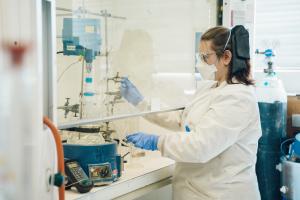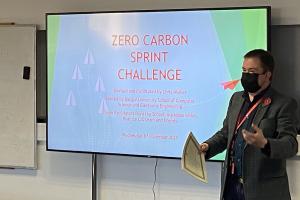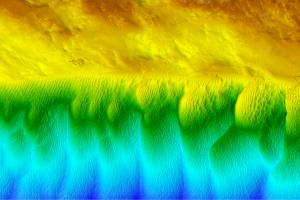Welsh science is world-leading in addressing the biggest challenges facing the planet
Wales may be a small country, but it punches above its weight in the quality and the quantity of the research it carries out. A new report published today (Thursday, 30 September, 2021), highlights the particular strength of Welsh science in contributing to efforts to meet the United Nations Sustainable Development Goals (SDGs).
The report “UN SDGs: Wales’ Research Performance with UK and Global Comparators” was launched at an event hosted by First Minister, Mark Drakeford, and Chief Scientific Advisor, Peter Halligan.
This report is such positive reading. High quality research is critical to finding solutions to difficult problems, and it is so encouraging to read how much of Wales’s research effort is targeted to the most important challenges we face, and how this is world-leading in terms of quality.
One wonderful example is how Bangor University is working with Cardiff University to monitor COVID-19 levels in wastewater. They are sharing this expertise with local and international partners worldwide, so this new science can help tackle the pandemic in different contexts.”
The Sustainable Development Goals were agreed by all member states of the United Nations in 2015 as an urgent call for action by all countries. They recognise that ending poverty must go hand-in-hand with strategies that improve health and education, reduce inequality, and spur economic growth – all while tackling climate change and working to preserve our oceans and forests.
Dr Rattan Yadav, Aberystwyth University, said:
“In IBERS among a wide variety of projects, we are working with partners in India and Africa to develop new varieties of pearl millet, a staple food, which can help reduce the risk of diabetes-this is contributing the SDG 2 - Zero Hunger and SDG 3 - Good Health and Well-being.”
Professor Carole Llewellyn, Swansea University, said:
“Swansea University is growing microalgae using waste nutrients from farming and food industries which is then used to generate new products such as animal feed. Thus working with farmers, industry and policy makers we are reducing waste and replacing unsustainable products with ones that are more sustainable. This contributes to a wide range of the Sustainable Development Goals including responsible consumption and climate action.”
Among the SDGs, Welsh research is making a particularly strong contribution to those which relate to the planet such as SDGs 13, Climate Action, 14, Life below Water, and 15, Life on Land.
Professor Mike Bruford, Cardiff University, said:
“This report is very positive as it emphasises that impactful research in environmental sciences and sustainability also has global traction and increases the visibility of Welsh research. In Cardiff we have tried to focus on multidisciplinary research in the environmental sciences both in Wales and in key global regions and it is good to see that the global research community is acknowledging this.”
A critical factor in Wales’s success is the extent to which researchers collaborate extensively across borders and sectors. Welsh research is most effective where Welsh researchers work collaboratively with others, regardless of geographies and sectors, demonstrating the productive outcome of years of international networking.
With COP26 little more than a month away, this report makes for very interesting reading and I was so proud to see the contribution our scientists continue to make to global issues.
“Whether it is helping us tackle the Covid pandemic or tackling the challenges of climate change, the report makes it clear that Wales plays a disproportionately strong role in Sustainable Development Goals related research.
“At 130% above the world average, Wales had the joint highest overall citation impact of all of the comparators considered in the report making us a global leader in Sustainable Development Goals related research.
“The report highlights the depth and breadth of research and talent we have here in Wales and our strengths in the fields of people, planet and prosperity.
The Low Carbon Energy and Environment Research Network Wales have brought together a collection of case studies to illustrate the depth and breadth of excellent research going on in Wales which is contributing the biggest global challenges society faces.
The Low Carbon Energy and Environment Research Network Wales is a pan-Wales research initiative hosted at Bangor University which supports Wales’ world-leading research in low carbon energy, nature-based solutions to environmental challenges, the bioeconomy, and sustainable food production. It aims to enhance and build upon the excellent research capability in Wales, and to increase the competitive funding secured in Wales.



